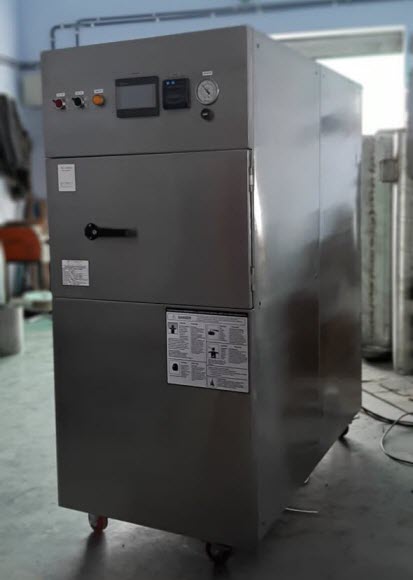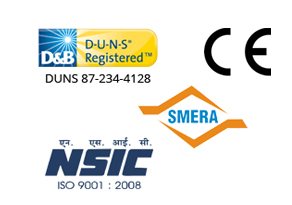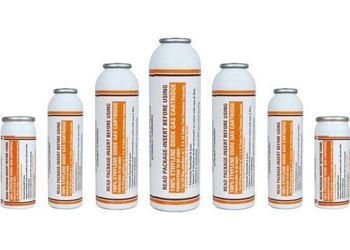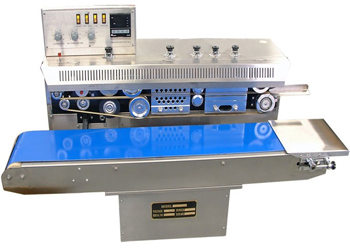Sterilization is a critical process in healthcare settings as it eliminates harmful microorganisms from medical equipment and instruments. It is vital to maintain a sterile environment to safeguard patients from infections during medical procedures and surgeries. ETO sterilizers have proven to be effective in achieving this goal, making them an indispensable asset in the healthcare industry.
One of the key advantages of ETO sterilization is its ability to penetrate various materials, including those with complex shapes. This characteristic allows for thorough disinfection of medical devices that may have hard-to-reach areas, which might be challenging for other sterilization methods. As a result, ETO sterilizers are highly preferred for ensuring the complete eradication of bacteria, viruses, and other pathogens.

The Advantages of ETO Sterilizers for Healthcare Facilities
ETO sterilizers offer numerous advantages that make them a preferred sterilization method for healthcare facilities.
- Effective Microorganism Eradication: ETO sterilizers are highly effective in eradicating a wide range of microorganisms, including bacteria, viruses, and spores. Their ability to penetrate deep into complex medical instruments ensures thorough disinfection, leaving no room for potential pathogens to survive.
- Material Compatibility: One of the key advantages of ETO sterilization is its excellent material compatibility. Unlike some other sterilization methods, ETO does not cause damage to sensitive medical devices, making it suitable for a variety of materials, including plastics, rubber, and metals.
- Ideal for Heat-Sensitive Instruments: Certain medical instruments are heat-sensitive and cannot withstand the high temperatures of steam sterilization. ETO sterilizers provide a gentler alternative, allowing heat-sensitive devices to undergo effective sterilization without compromising their integrity.
- Versatility in Sterilization: ETO sterilizers can accommodate a diverse range of medical devices with varying shapes and sizes. From intricate surgical instruments to electronic equipment, ETO sterilization ensures consistent and reliable disinfection across the board.
- Low Moisture Requirements: Unlike some other sterilization methods, ETO sterilization requires lower moisture levels, reducing the risk of corrosion or rusting of medical instruments. This characteristic prolongs the lifespan of equipment and minimizes the need for frequent replacements.
- Penetrates Packaging: ETO has the unique ability to penetrate through various packaging materials, such as plastics and paper, ensuring that the sterilization process remains effective even when items are sealed in protective covers.
- Reduced Residue Formation: ETO sterilization leaves minimal residue on sterilized items, promoting a clean and residue-free surface. This is especially crucial for devices that come into direct contact with patients’ bodies.
- Safe for Delicate Devices: Delicate and intricate medical instruments often require a gentler sterilization method to preserve their functionality. ETO sterilizers meet this requirement, ensuring that delicate devices remain intact and fully operational.
- Scalability and Throughput: ETO sterilizers are available in various sizes, making them suitable for both small clinics and large healthcare facilities. Their capacity for high throughput allows for efficient sterilization of numerous items in a single cycle.

Ensuring Compliance with Sterilization Standards in Delhi Hospitals
Ensuring compliance with sterilization standards and guidelines set by regulatory bodies is of utmost importance for hospitals in Delhi. Adhering to these standards not only upholds patient safety but also safeguards the reputation of healthcare facilities and helps prevent potential legal issues.
- Patient Safety as the Top Priority: Sterilization standards are put in place to protect patients from the risk of infections and cross-contamination during medical procedures. By strictly following these guidelines, Delhi hospitals prioritize the well-being of their patients and create a safe healthcare environment.
- Preventing Healthcare-Associated Infections (HAIs): Healthcare-associated infections can have serious consequences for patients, leading to prolonged hospital stays, increased treatment costs, and even fatalities. Compliance with sterilization standards significantly reduces the likelihood of HAIs, contributing to better patient outcomes.
- Maintaining a Stellar Reputation: Compliance with sterilization standards is essential for building and maintaining a positive reputation in the healthcare industry. Hospitals that consistently meet or exceed these standards are perceived as trustworthy and reliable institutions, attracting more patients and healthcare professionals.
- Legal Compliance and Risk Mitigation: Regulatory bodies in Delhi set sterilization standards to ensure that healthcare facilities adhere to the best practices in infection control. Failure to comply with these guidelines can result in legal liabilities, fines, and potential closure of the facility. By adhering to the standards, hospitals mitigate the risk of legal issues and maintain their operational continuity.
- Enhancing Trust and Patient Confidence: Patients seek medical care from hospitals they trust to provide safe and hygienic services. By complying with sterilization standards, Delhi hospitals instill confidence in their patients, reassuring them that their health and well-being are the top priority.
- Professional Credibility: Compliance with sterilization standards reflects the professionalism and dedication of healthcare providers and staff. It demonstrates a commitment to delivering quality care, which further enhances the credibility of the hospital in the eyes of patients and peers.
- Continuous Improvement in Patient Care: Sterilization standards often evolve based on advancements in medical science and best practices. By adhering to these evolving standards, hospitals commit to continuous improvement in patient care and infection control.
- Collaborative Approach to Infection Control: Compliance with sterilization standards encourages a collaborative approach among hospital staff, fostering a culture of infection control awareness and responsibility. This teamwork helps prevent potential breaches and strengthens overall infection control measures.





